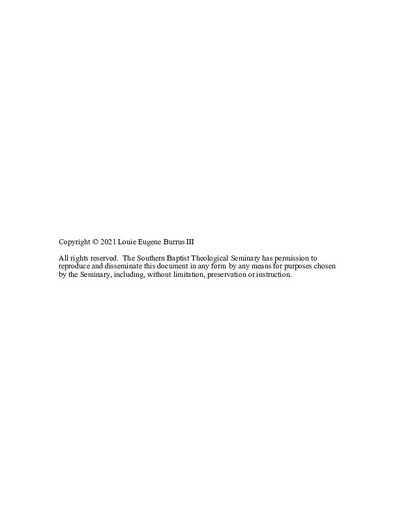Critiquing Common Themes in LGBT-Affirming Psychologies with Orthodox Christian Frameworks
Subject
Homosexuality--Religious aspects--ChristianitySexual orientation--Religious aspects--Christianity
Abstract
Few works have delineated a robust orthodox pastoral theology for LGBT-identified people. Addressing this deficiency, this dissertation inductively investigates three prominent themes of LGBT-affirming psychologies, surveys evangelical engagement with these themes, and proposes three alternatives rooted in a biblically based, Christian worldview. Chapter 1 introduces the project and surveys contemporary Christian literature regarding the same-sex attraction and gender incongruence to help the reader navigate how evangelicals have engaged these issues. Chapter 2 explores biblical, historical, and theological foundations for addressing presenting LGBT labels in Christian soul care. Chapter 3 traces the historical development of modern psychology's tradition of inquiry regarding what we now call LGBTQ+ issues and identifies the theoretical frameworks that have informed LGBT-affirming psychologies and challenged historic Christian beliefs about sexuality and gender. Chapter 4 identifies and traverses the main secular frameworks that inform LGBT psychologies (the first theme), evaluates these frameworks from a Christian perspective, and surveys and assesses how evangelicals have engaged these frameworks. Addressing the second and third themes, chapter 5 details how LGBT psychologies conceptualize LGBT identity development and how they address the religious conflicts created by LGBT identities. Finally, the sixth chapter expands upon Christian alternatives to LGBT-affirming psychologies: Christian critical essentialism, biblical narrative performances of the sexual self, and Christian narrative transformations of the sexual self.

